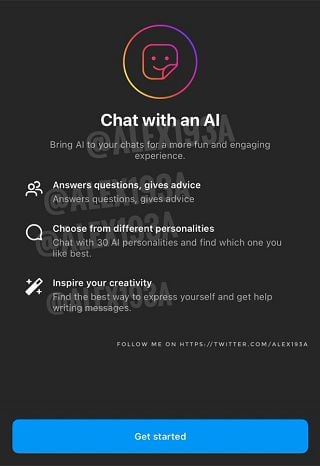Meta’s looking to make a bigger push into generative AI, via a new LLM system that it hopes will make it the leader in the AI race.
According to The Wall Street Journal, Meta’s currently building a new AI system, which it hopes will eventually rival OpenAI’s GPT systems in compute power and complexity. The system will build on Meta’s current Llama models, and bring Meta up to speed with others in the generative AI race.
As per WSJ:
“The planned system, details of which could still change, would help other companies to build services that produce sophisticated text, analysis and other output. It is the work of a group formed early this year by Meta Chief Executive Mark Zuckerberg to accelerate development of so-called generative AI tools that can produce humanlike expressions.”
Indeed, various reports have suggested that Zuckerberg became “obsessed” with AI after seeing the early hype around ChatGPT, which has changed the direction of many of Meta’s projects, and reduced its emphasis on the metaverse, its longer-term VR bet.
Though that also remains a key element in Meta’s planning. But generative AI has opened up new opportunities, and Meta is uniquely placed to tap into such, based on its unmatched databanks, and systematic resources.
On the latter, WSJ also reports that Meta’s currently in the process of acquiring more Nvidia H100 chips to power its AI ambitions. Nvidia chips are in high demand, and limited supply at present, which, at a base level, means that the company with the most chips stands the best chance to win out in the broader AI development race.
Earlier this year, Elon Musk reportedly purchased 10,000 GPUs for his generative AI project.
It’ll be interesting to see how Meta plans to deploy its own AI and LLM tools, and how they’ll be integrated into its in-app experiences. Meta’s already experimenting with a range of AI-powered elements, including visual creation tools and an Instagram chatbot.

Maybe, through a more advanced AI system, it’ll look to enhance and improve these experiences, while also utilizing higher-end AI within its ad targeting and creation process.
Overall, it’s little surprise to see Meta looking to make a bigger move in the AI space, given its long-term work in this area, and the potential it has to compete, based on its trove of conversational data and interaction. With these considerations factored in, it does seem like Meta should be able to create a better AI model, and it’ll be interesting to see how, exactly, it looks to deploy and utilize such systems.
According to WSJ, Meta expects to start training its new AI system in early 2024. No word yet on a public release timeline.



